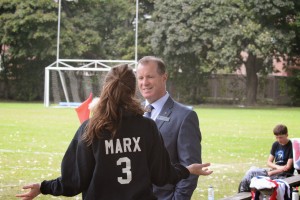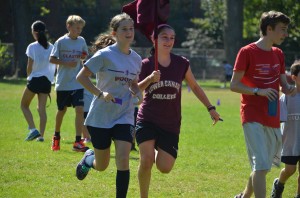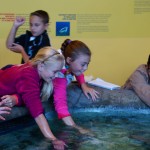 One of our important responsibilities at LCC is to broaden the perspectives of all our students. This happens every day when they attend class with peers from different cultural/religious backgrounds and every time they volunteer at a social service agency attempting to improve life in our community. Student perspectives are broadened when they walk into a food bank or a grassroots agency helping to reduce poverty or violence, assist teen mothers, or a host of other important causes.
One of our important responsibilities at LCC is to broaden the perspectives of all our students. This happens every day when they attend class with peers from different cultural/religious backgrounds and every time they volunteer at a social service agency attempting to improve life in our community. Student perspectives are broadened when they walk into a food bank or a grassroots agency helping to reduce poverty or violence, assist teen mothers, or a host of other important causes.
My personal sense of perspective was broadened recently when I learned more about people with disabilities and the fact that two Canadians are notable leaders in this field. They are working hard to eliminate stereotypes and change the perspectives of everyone across North America.
Mark Wafer is a man in Toronto who owns seven Tim Horton’s restaurants. Wafer has a hearing disability. Eighteen years ago he decided he would do his part to hire people with disabilities after he discovered that these individuals were routinely overlooked by employers. He wanted to disprove the unfounded biases that people with disabilities would be poor performers.
Since then, as an employer, Mark has learned some startling lessons. It turns out that his most efficient workers are consistently those with disabilities: people with hearing issues, autism, down syndrome, and intellectual handicaps of all sorts.
Wafer asserts that his employees with disabilities are extremely committed to their responsibilities at work. In 2011, not one of his 41 employees with a physical or mental disability missed a single hour of work. This is not something he could say for the other two-thirds of his team, for whom absenteeism was an issue.
Mark has been so impacted by the loyalty, productivity and contagious positive impact of these special employees, he has gone on the road across Canada to explain to other employers that workers with disabilities are actually a hidden gold mine.
Another Canadian who has made an impact with a similar message is Rich Donovan. He left a lucrative career on Wall Street in the financial sector to study the connection between disability, productivity, and profitability of companies.
Rich himself suffers from cerebral palsy. He has conducted thorough research and found that on average, employees with disabilities significantly outperform regular employees in many industries. He has labeled this the “Return on Disability”.
Perhaps the best case study of this in practice is Walgreens, America’s largest pharmacy chain. Walgreens has 20 large distribution centres across the USA. The most efficient one is in Connecticut. Of the 600 employees working there, nearly half are in some way disabled. Those employees are considered the principal reason that the distribution centre outperforms all others by 20% in terms of efficiency. Mark Wafer in Toronto also claims that his disabled employees are 15-20% more productive than the rest of his employees.
Rich & Mark are doing their best to spread the word and remind everyone who is able-bodied, and without mental or emotional handicaps, that we need to re-evaluate our sense of what people can do and how they can contribute.
Despite immigration, there are fears that by 2025 Canada will be short 1 million workers. Perhaps some of the solution is sitting in front of us. But clearly, too many of us have been blind for too long about the abilities and potential of disabled people.
As you know, Terry Fox is probably Canada’s most famous disabled citizen. He ran his famed Marathon of Hope on one leg for several months, raising money for cancer research while impressing and inspiring a nation and the world. LCC has participated in the Terry Fox Run for more than 30 years. It’s a priority for our school – so please support a student in the annual run this coming Friday. – Chris Shannon, Headmaster






